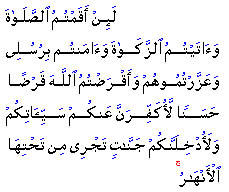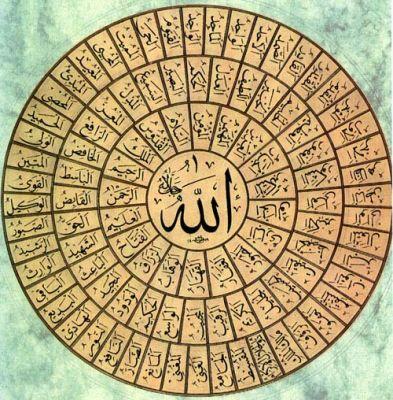It was early in the morning at four,
When death knocked upon a bedroom door,
Who is there? The sleeping one cried.
I'm Malkul Mawt, let me inside.
At once, the man began to shiver,
As one sweating in deadly fever,
He shouted to his sleeping wife,
Don't let him take away my life.
Please go away, O Angel of Death!
Leave me alone; I'm not ready yet.
My family on me depends,
Give me a chance, O please prepense!
The angel knocked again and again,
Friend! I'll take your life without a pain,
Tis your soul Allah requires,
I come not with my own desire.
Bewildered, the man began to cry,
O Angel I'm so afraid to die,
I'll give you gold and be your slave,
Don't send me to the unlit grave.
Let me in, O Friend! The Angel said,
Open the door; get up from your bed,
If you do not allow me in,
I will walk through it, like a Jinn.
The man held a gun in his right hand,
Ready to defy the Angel's stand.
I'll point my gun, towards your head,
You dare come in; I'll shoot you dead.
By now the Angel was in the room,
Saying, O Friend! Prepare for you doom.
Foolish man, Angels never die,
Put down your gun and do not sigh.
Why are you afraid! Tell me O man,
To die according to Allah's plan?
Come smile at me, do not be grim,
Be Happy to return to Him.
O Angel! I bow my head in shame,
I had no time to take Allah's Name.
From morning till dusk, I made my wealth,
Not even caring for my health.
Allah's command I never obeyed,
Nor five times a day I ever prayed.
A Ramadan came and a Ramadan went,
But no time had I to repent.
The Hajj was already FARD on me,
But I would not part with my money.
All charities I did ignore,
Taking usury more and more.
Sometimes I sipped my favorite wine,
With flirting women I sat to dine.
O Angel! I appeal to you,
Spare my life for a year or two.
The Laws of Quran I will obey,
I'll begin SALAT this very day.
My Fast and Hajj, I will complete,
And keep away from self-conceit.
I will refrain from usury,
And give all my wealth to charity,
Wine and wenches I will detest,
Allah's oneness I will attest.
We Angels do what Allah demands,
We cannot go against His commands.
Death is ordained for everyone,
Father, mother, daughter or son.
I'm afraid this moment is your last,
Now be reminded, of your past,
I do understand your fears,
But it is now too late for tears.
You lived in this world, two score and more,
Never did you, your people adore.
Your parents, you did not obey,
Hungry beggars, you turned away.
Your two ill-gotten, female offspring,
In nightclubs, for livelihood they sing.
Instead of making more Muslims,
You made your children non-Muslims.
You ignored the Mua'dhin Adhaan,
Nor did you read the Holy Quran.
Breaking promises all your life,
Backbiting friends, and causing strife.
From hoarded goods, great profits you made,
And your poor workers, you underpaid.
Horses and cards were your leisure,
Moneymaking was your pleasure.
You ate vitamins and grew more fat,
With the very sick, you never sat.
A pint of blood you never gave,
Which could a little baby save?
O Human, you have done enough wrong,
You bought good properties for a song.
When the farmers appealed to you,
You did not have mercy, tis true.
Paradise for you? I cannot tell,
Undoubtedly you will dwell in hell.
There is no time for you to repent,
I'll take your soul for which I am sent.
The ending however, is very sad,
Eventually the man became mad
With a cry, he jumped out of bed,
And suddenly, he fell down dead.
O Reader! Take moral from here,
You never know, your end may be near
Change your living and make amends
For heaven, on your deeds depends.
If this poem inspires you,
It can help someone too.
**********************************************
At least take sometime, and do not make it ban
And send it to as many people as you can.
What do you have for your END?
Take Care with: The END
 Zheng helped transform China into the superpower of his time.He led a fleet of 30,000 men on board 300 ships to the American continent in the 15th century to expand China's influence during the Ming dynasty. Zheng drew up maps later used by Columbus to reach America in 1492 while searching for a new route to India.
Zheng helped transform China into the superpower of his time.He led a fleet of 30,000 men on board 300 ships to the American continent in the 15th century to expand China's influence during the Ming dynasty. Zheng drew up maps later used by Columbus to reach America in 1492 while searching for a new route to India.





 Islam.com
Islam.com